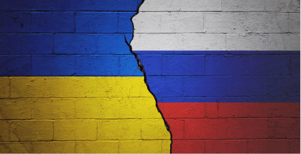2 min read
Supporting students and staff with processing recent world events
Chris Joffe
:
February 28, 2022
The recent news of Russia’s invasion in Ukraine is shaking many of our communities. Students and staff alike are likely grappling with a mix of emotions — fear, anxiety, sadness, confusion, and exhaustion, to name a few. While we do not know how the conflict will play out in the coming days, weeks, and months, we do know that giving people space to process these emotions is critical to being able to keep everyone mentally healthy and able to learn. We also know that showing empathy, understanding, and sensitivity right now is especially important.

All families and individuals are experiencing the conflict differently. Some members of our communities may have close family or friends in Ukraine and/or Russia, some have roots in other countries in the region, others may have family members serving in the military, and still others may have general fear about what a Russian-Ukrainian war means internationally and domestically. As you support your school community through this tumultuous time, consider these tips and resources for helping students and staff process recent events:
1. Get everyone focused on helping students feel safe:
Students who feel unsafe or are overly anxious will not be able to learn. Ultimately, everyone on campus should stay focused on one goal: helping students feel safe. All of the efforts and work we do to support our communities should stem from this goal. This does not mean sweeping the conflict under the rug and moving on - on the contrary, it’s important to offer space to process and express emotions, but this must be approached thoughtfully so these conversations reassure students rather than heightening their emotions.
2. Offer an abundance of social and emotional support for students:
In the current moment, many K-12 students (and the adults on campus) are facing questions and issues they have not experienced before. That may stir up new emotions or trigger existing trauma. It will be important to be prepared to lean in on social and emotional learning and support in the coming weeks. Increasing counseling, dedicating time during the school day for conversations, proactively offering support to students who appear to be struggling, and building in time for play and creative expression can help. The Yale Center for Emotional Intelligence offers a free online course for educators called “Managing Emotions in Times of Uncertainty & Stress” that can be a valuable resource.
3. Create space for staff to process:
Teachers and staff will not be able to support students if they themselves are feeling overwhelmed and fearful. Listening, offering space for discussion, and - where possible - providing counseling resources can help the adults on campus stay mentally healthy, and enable them to offer the same for their students.
4. Provide resources for teachers to talk with students:
Offering age-appropriate resources that empower teachers to lead classroom discussions about the conflict can help both teachers and their students. The San Diego County Office of Education has developed a list of curated resources for teaching about the current crisis.
5. Proactively communicate with families:
In situations like these, communicating with families is often a forgotten step. However, it can be an important and impactful way to show families that we’re paying attention to what their children are experiencing. We’ve developed a template you can use as a starting point.
This conflict will undoubtedly evolve over the next few days, and the needs of students and communities will evolve as well. Wherever this path leads, our team is here, and we will continue to provide support, partnership, and materials so you can provide the best possible support to your school and community.
You’ve heard this before, all too often, but this too will likely be a marathon. Our challenge in this moment is to apply the urgency needed to embrace our communities in this acute moment and to ensure our ongoing response is sustainable should it need to persist.

